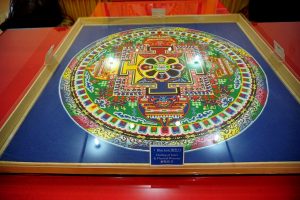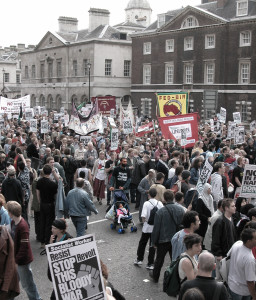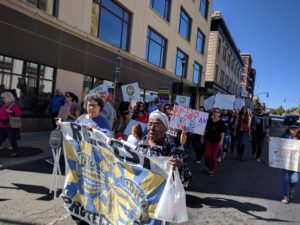C, J, H: My Three “Brogan Words” for 2020, Part 3
Healing
 This year, healing will have both a personal and a global component, starting with a deeply moving experience in mid-December. In August, 2018, my stepfather was in the crosswalk in front of his apartment, on his way to his daily 3-mile jog. He had activated the flashing light and was making his way across when a driver, looking at the GPS on the phone in her lap instead of the road, struck and killed him.
This year, healing will have both a personal and a global component, starting with a deeply moving experience in mid-December. In August, 2018, my stepfather was in the crosswalk in front of his apartment, on his way to his daily 3-mile jog. He had activated the flashing light and was making his way across when a driver, looking at the GPS on the phone in her lap instead of the road, struck and killed him.
On December 16, 2019, we finally got our day in court. In collaboration with my sister and my wife, we had submitted a statement more than a year earlier saying we didn’t feel incarceration would serve any purpose, and we proposed instead that the driver perform community service by speaking about distracted driving to audiences that would include high school students. This came out of our belief in restorative justice, and not out of any human connection with the defendant.
But that connection came when we went to court. I read my statement and added some unscripted thoughts based on information that had come to light since I’d submitted it. She read a deep and sincere apology. We both cried during our statements.
After she was sentenced to three years of probation with 200 hours per year of community service, half of it speaking, I went up and hugged her, and then we all (the defendant, my wife and I, and our respective lawyers) found a meeting room and spent about 40 minutes together, forging a connection that I think will be lasting. Before the hearing, I never in my wildest dreams thought we might become friends. Now I think that’s quite possible.
I wrote up that day in some detail in the Gratitude Journal I’ve posted daily on Facebook since March, 2018. And I heard from several people that my account was one of the most moving things they’d read in a long time. The Gratitude Journal, by the way, has deepened my life in many ways, but that’s for another time.
I don’t think it’s a coincidence that this hearing was a day after Shonali Burke sent out her newsletter with her three Brogan words, and that she and I have been emailing about her newsletter, and my promise to her that if I came up with the words, I’d share them with her.
So that’s on the personal side. Let’s touch on the global side of healing.
For me, healing is bound up with justice. All of the work I do to make the world better has both a healing component and a focus on justice. Whether I’m attempting to help heal an ill individual (I do send prayers when asked), a threatened ecosystem, or a rift between very different communities with different culture and values, these two parts will be there.
And especially when there’s so much division and even hatred in our society today, it’s very challenging to find the positive, find the places of agreement, and work outward from there to mutual respect even though our conclusions–coming out of those widely divergent values and cultures–may be so different.
This has been a challenge my entire adult life, starting when I was 17 or 18 and at a demonstration at a military base near my college in Ohio. I found myself drawn to the fences, where a few of us were starting to talk with the soldiers on the other side of those chain-links. And I found that this felt really powerful.
I’m far from an expert in cross-barrier dialogue, but I find that the more I do it, the easier it gets. Even with my limited skills, I work really hard to find ways for people who disagree to talk and listen with each other. And the opportunities are all around us. Over these fifty years, I’ve had conversations not just as a progressive talking with conservatives but also as a Jew talking with Arabs and Muslims, a bisexual interacting with and educating both straights and gays (separately), a believer in conscious capitalism working with socialists who have absolutely no use for the business world, a believer in minimum standards of living for poor people who gets into ardent discussions with uber-capitalists who think anyone can claw their way out of poverty, a techno-klutz among geeks and a whiz kid among Luddites. Some of these have been highly structured, others are casual conversations.
As I said, opportunities for dialogue are all around us.
I hope you’ve enjoyed my three words and the rationale and goals underpinning them. You’re welcome to share this with friends and colleagues–and to post your own three words in the comments.
If you missed the earlier posts, please click to read Part 1, Clarity, and Part 2, Justice,


